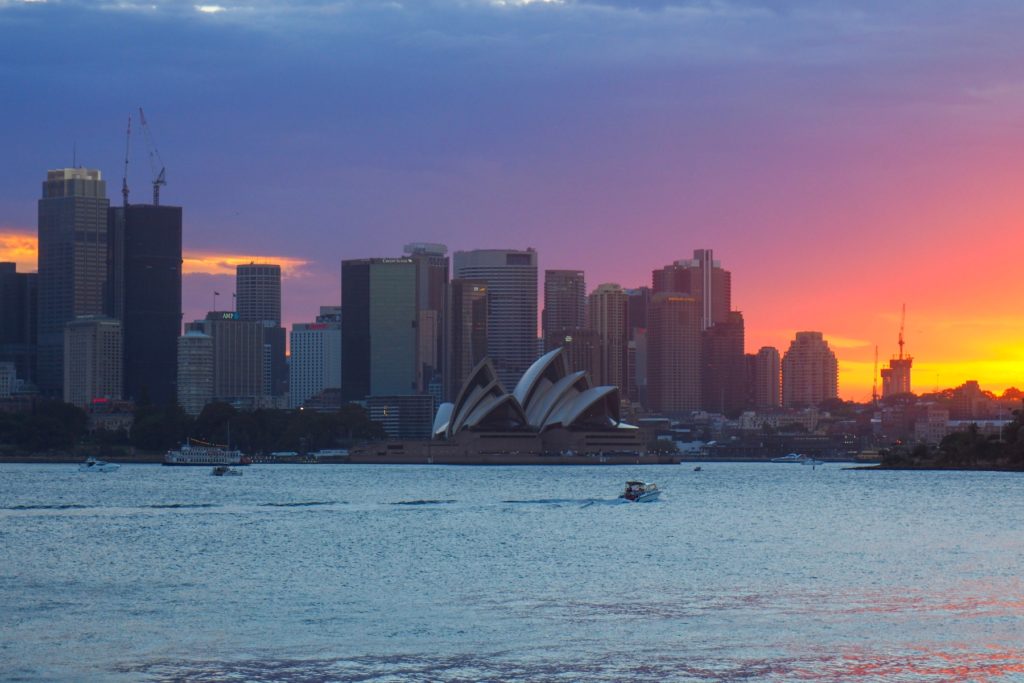Australia remains one of the most attractive countries in the world for skilled migration, thanks to its strong economy, high quality of life, stunning nature, and work-life balance. But how exactly do you migrate to Australia in 2025? What visas are available? How do you qualify for permanent residency? Find your answers here.
Table of Contents
Why Migrate to Australia?
Australia offers an incredible quality of life. With all-year-round sunshine, large cities less than 30 minutes from the beach, and a stable economy, the country attracts many migrants who want to settle there permanently. In fact, Australia has enjoyed stable growth and a low unemployment rate (4% in March 2025), as well as high wages, offering its citizens a very good standard of living. In addition, the living environment is ideal, beautiful landscapes, great weather, friendly people … in short, it’s a piece of paradise.
Understanding Australian Immigration Policy
Australia’s immigration policy is designed to attract individuals who will contribute to the economy and society. The policy encompasses various visa categories, including skilled workers, family reunification, and humanitarian visas. Prospective migrants must identify the visa category that best matches their circumstances and qualifications.
The country strictly follows its chosen immigration policy, but doesn’t hide the need for workers in certain sectors. A chance for many qualified people! The pandemic has further amplified this phenomenon. Today, the country recruits a lot of foreign workers to fill the national labour shortage. This applies to all fields. Whether you are a waiter, a pastry chef, a plumber or an engineer, you have the possibility to migrate permanently to Australia.

Can You Migrate to Australia?
To be eligible for permanent or long-term migration to Australia, you generally need to meet one of the following:
✅ Have qualifications and experience in a profession in demand,
✅ Be sponsored by an employer or a state/territory,
✅ Have a family member who is a permanent resident/citizen,
✅ Plan to invest or start a business,
✅ Or qualify under a humanitarian or partner visa route.
Leaving your home country
Administrative documents
- Make sure you have a valid passport and an Australian visa.
- Apply for an international driver’s license or a NAATI translation if your licence is not in English.
- Remember to inform the Citizens Registration Office, the Tax Office and Social Security about your move.
- Cancel your current contracts (phone, internet, water, electricity, home/ car insurance, etc.)
Book your flight tickets
Once you have got your visa in your pocket, you can buy your airline tickets. The trip to Australia is long, at least 24 hours flight time. You can either book the tickets through a travel agent or online on one of the many comparison websites available on the Internet.
Get a health check
Before you leave home, it’s important you get thoroughly checked as long as you are still covered by social insurance. This is the perfect time to visit your family doctor, dentist, gynaecologist, physiotherapist, ophthalmologist and more.
It is also essential to consider taking out health insurance. Ask various insurance companies about policies that best suit your needs.
💸 10% discount on your insurance policy
Find here all the information you need and get your 10% Go walkabout promo code for any policy.
Australia immigration process
Choose your profile
If an Australian company offers you a job and wants to sponsor you, they will offer you the opportunity to work in Australia. You can apply for a Skills in Demand visa or a 186 or 187 visa.
To find out if your profession is in demand in Australia, you should have a look the lists provided by the Australian Government. If your job is listed, you can apply for a visa through the Points System (189 or 190).
If you want to immigrate through a family member in Australia, that person must sponsor you. This person will also have to vouch for your application (financially too).
If you want to start a business in Australia, there are several visas available. However, the financial requirements are very high.
If you wish to deepen your knowledge in a particular field or to resume your studies, you should apply for a student visa. Depending on your course of study, this visa may give you the right to work in the country for several years after you have finished your studies.
Increase your chances
You can increase your chances to migrate to Australia with a more accessible visa. For example, if you are under 31 or 35 depending on your nationality, you can apply for a Work and Holiday visa (subclasses 417 or 462). This gives you the opportunity to stay in Australia for a year, during which time you can find an employer willing to sponsor you. This visa can also be renewed up to 2 times (under conditions).
A student visa may also be a good option to gain a foothold in Australia. Employers will be reassured to know that you have studied in Australia and therefore have a good level of English both in writing and orally. Some student visas also make permanent residency possible.
Hire an immigration agent
Migrating to Australia can be a long and sometimes complex process, depending on the situation. The list of required documents is often long. If you don’t speak the language well, the whole thing is quickly turning into a nightmare. An immigration officer can help you with each step and make sure that all your paperwork is complete. He will act on your behalf for all administrative tasks related to the visa application.
Make sure you’re hiring a MARA-approved agent who has a migration agent registration number.

Australian Visas options
The Australian Immigration website lists more than a hundred visas. Here is a list of different visas that might suit you:
Skilled Migration Visas
These are point-based visas for professionals with in-demand skills.
| Visa | Details | Permanent? |
|---|---|---|
| Subclass 189 – Skilled Independent | No sponsor required; based on occupation, points test | ✅ Yes |
| Subclass 190 – Skilled Nominated | Nominated by a state or territory | ✅ Yes |
| Subclass 491 – Skilled Work Regional | Sponsored by a regional area; leads to PR | ❌ Temporarily (5 years) → PR later |
➡️ You must submit an Expression of Interest (EOI) via SkillSelect and be invited to apply.
Employer-Sponsored Visas
| Visa | Details | Permanent? |
|---|---|---|
| Subclass 482 – Skills in Demand | Company sponsors you for 4 years | ❌ No (can lead to PR) |
| Subclass 186 – Employer Nomination Scheme | Direct pathway to PR with employer sponsorship |
Additional Information: Visa Skills In Demand – Sponsor Visa in Australia
Family and Partner Visas
If your partner/spouse is Australian or holds PR:
- Long process (12–24 months), but leads to PR.
- Partner visa (subclass 820/801 or 309/100),
- Requires genuine relationship + evidence (shared life, photos, finances, etc.),
Further information: Partner Visa Australia – Conditions and Procedure
Working Holiday Visa (subclasses 417 & 462)
The Working Holiday visa is for young people between 18 and 35 years old (or 30 depending on nationality). It allows you to travel and work in Australia for one year (renewable twice).
Can You Migrate After a Working Holiday Visa?
Yes — many do! Common pathways:
- Skilled visas (if you gain relevant work experience and points),
- Student visa (to study and gain a local qualification),
- Partner visa (if in a serious relationship),
- Employer sponsorship (if you find a job and a willing sponsor).
📍 Note: Time spent on WHV does not count toward PR unless transitioning to another visa.
Graduate and Student Pathways
With a student visa – subclass 500 (no age limit), you can study in Australia and work up to 48 hours per fortnight. The visa is valid for the duration of your studies until a few weeks after you finish.
If you studied in Australia, you may be eligible for:
- Subclass 485 – Graduate Work Visa (valid 2–8 years in 2025 depending on qualification level and region),
- Transition to a skilled or employer-sponsored visa after gaining experience.
The full list of Australian visas can be found here: homeaffairs
What Are the Costs of Migrating?
- Skilled Visa (189, 190): A$4,765 per adult applicant
- Working Holiday Visa: A$650
- Student Visa: from A$1600
- Partner Visa: A$9,095 (2025 fee)
- Skills Assessment: A$400–A$1,000
- English test (IELTS): A$450
💬 Tip: Use a registered migration agent if your case is complex — but always check they’re MARA-registered.
Settling in Australia
Adjusting to life in Australia requires more than just obtaining a visa. New migrants must find accommodation, employment, and possibly schools for children. Understanding Australian culture and norms is also crucial for a smooth transition.
- Finding a Home: Research housing options in your intended area of residence. Consider renting before committing to purchasing property.
- Employment: Use job search websites, recruitment agencies, and networking to find employment opportunities. Credential recognition may be necessary for certain professions.
- Healthcare: Enroll in Medicare, Australia’s public healthcare system, if eligible. Otherwise, consider private health insurance.
- Education: Familiarize yourself with the Australian education system, from primary to tertiary education, to make informed decisions for your or your children’s education.
Life in Australia
With an incredible climate most of the year, it’s only natural that much of daily life is spent outdoors. You’ll soon realise that sport is a religion in Australia. Almost every Australian plays a sport every day. It is not uncommon to see joggers at 6am or surfers in the evening after work.
In general, wherever you are, you will quickly realise that Australians are very friendly and always ready to help and guide you! They are also very law-abiding and orderly, which makes the country very safe.
The quality of life in Australia is extremely good with a growing economy, low unemployment, good infrastructure and a good education system.
Frequently asked questions
Australia offers a variety of immigration visas, such as work visas, student visas, permanent resident visas, partner visas, family visas and humanitarian visas. Everything will depend on your personal and professional situation.
The requirements for obtaining a permanent visa in Australia will vary depending on the type of visa and your personal circumstances. In general, you will have to meet criteria such as age, professional skills, level of education and English, and work experience.
You can search for job vacancies on job boards in Australia, apply directly to companies that sponsor foreign workers, or use the services of recruitment agencies specialising in immigration. Networking can also be a good way of finding a sponsor in Australia. Finally, you should know that most people who immigrate to Australia start their journey on a WHV or student visa.
Qualification criteria vary based on the type of visa. Generally, factors like age, skills, work experience, English language proficiency, and sponsorships play a role in determining eligibility.
Yes, many visas allow you to include family members as dependents in your application. Family visas, like Partner or Child visas, are designed to reunite families in Australia.
Update 01.05.2025
The information provided regarding visas and immigration procedures is offered on a general basis for initial guidance. Immigration policies can change and vary based on individual circumstances. It is highly recommended to always refer to the official website of Australian immigration or consult immigration professionals to obtain accurate and up-to-date information before undertaking any migration or visa process.























